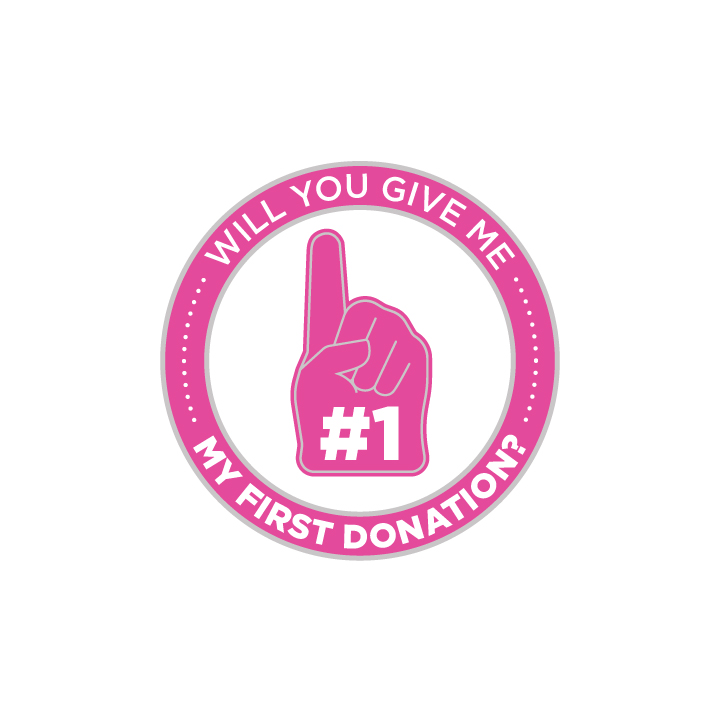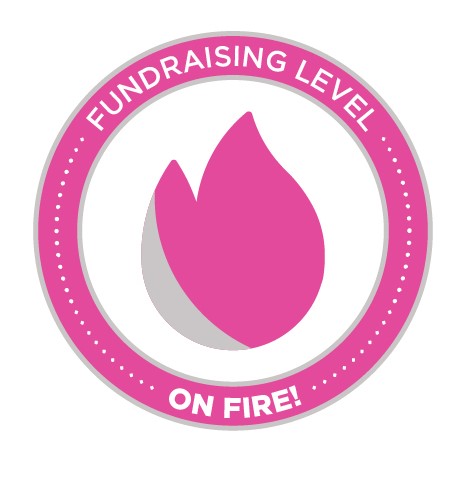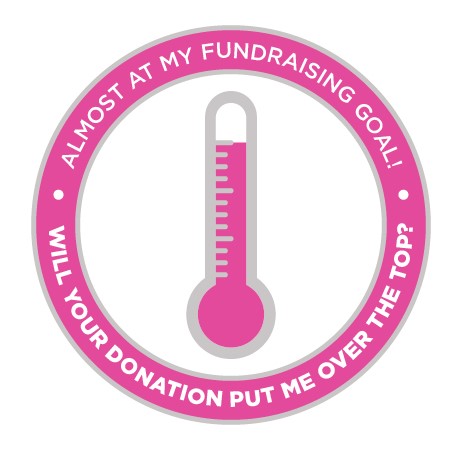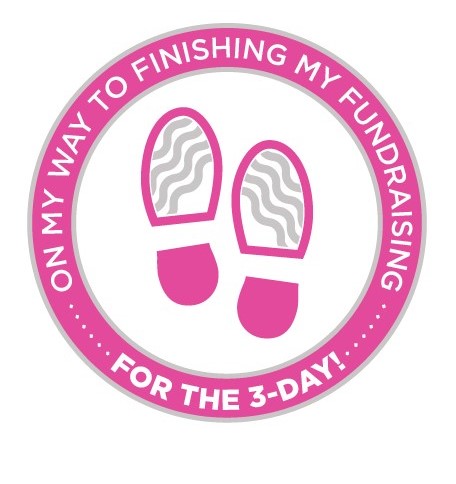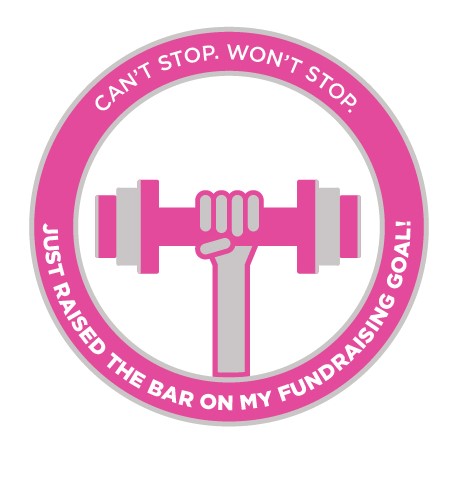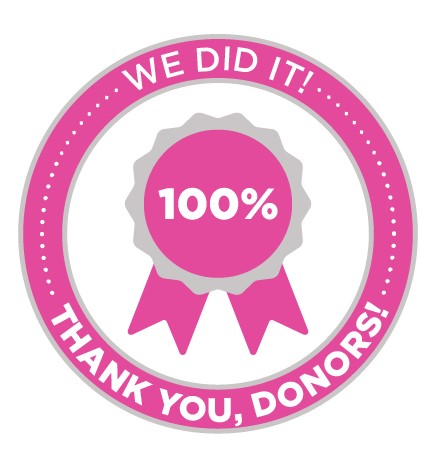At Susan G. Komen®, we have a vision: a world without breast cancer. Without the 3-Day community – some of our most dedicated and effective fundraisers and supporters – we cannot make that vision a reality. Since 2003, there have been over 500,000 3-Day participants who have raised more than $820 million which has helped fund more than 2,500 research projects and 460 clinical trials. Over the past year, we’ve been working to show you how those miles have translated into a direct impact on the fight against breast cancer, funding both community health initiatives and cutting edge research around the world.

Dr. Jay Desgrosellier in his lab
Today, we are launching a new blog series designed to introduce you to some of the researchers whose work is made possible in part by the miles you walk, the dollars you raise and the blisters you’ve all suffered through. We know the science behind breast cancer can be a little intimidating, so we’re adopting a format that we hope you’ll find familiar: a 3-Day event, complete with an Opening Ceremony, a Pit Stop and everyone’s favorite Mile 59. Conversations just seem to flow easier when you’re out on the route together. So lace up those sneakers and grab your water bottle as we walk a few miles with Dr. Jay Desgrosellier while he tells us a bit about his breast cancer research.
Opening Ceremonies
There’s no such thing as a stranger on the 3-Day. Dr. Desgrosellier, can you tell us a bit about what led you to do breast cancer research?

Honestly, my interest in breast cancer research came about very organically. About six years ago, it became very obvious to me that, [in the process of working on an unrelated research project], my lab had discovered something that could have a substantial impact on the way we treat breast cancer. I remember thinking we had an obligation to follow this line of thought and see if we could make some kind of contribution toward fighting this disease.
On The Route
Since we’ve got some time, could you tell us a bit about your current research?

The quick answer is that my lab is studying the stem cells in the mammary glands that play a role in pregnancy-related breast changes and the role similar cells hiding within breast tumors might be playing in the development and spread of breast cancer, which is called metastasis.
But since we have some time to get into the details, let’s start here: the majority of breast cancer deaths are due to metastasis. Metastasis is the spread of tumor cells beyond the breast tissue and into other parts of the body, where additional tumors can form. Depending on where they grow, those tumors can cause organ dysfunction and failure, resulting in death. If we can stop metastasis, we will save a lot of lives. A lot of scientists are focused on addressing exactly this question.
It turns out that the movement of breast cancer cells through the body is relatively easy. However, most tumor cells are incapable of growing in other organs. While we often think of a tumor as being a big blob where all of the cells are the same, that isn’t the case. Tumors are actually quite complex and are made up of several types of cells that all have different functions and capabilities. And it is only a handful of these cells, called stem-like tumor cells, which are capable of initiating the growth of a new tumor in a new organ.
Prior to our current breast cancer study, we were researching the role of naturally occurring breast stem cells that are involved in the changes in the breast that occur during pregnancy, and realized similar cells might be at work in breast cancer to initiate tumor growth. Sure enough, when we looked at breast cancer tissue, we found evidence of these stem-like cells hiding within breast tumors. This radically altered our view of this disease, and suggested tumor cells aren’t that creative. Instead, they’re just mimicking the normal breast stem cells that are at work during the healthy breast changes associated with pregnancy. We believe these stem-like cells are able to survive treatment with traditional chemotherapies, allowing them to spread through the body and seed the growth of a new tumor in a new location.
Motivated by this observation, our lab’s objective has become figuring out how to eliminate these ‘stem-like’ cells from aggressive breast tumors. We believe that by targeting this particular subset of cancer cells, we may be able to reduce recurrence and metastasis and prevent deaths from breast cancer.
At Camp
Now that we’ve made it “home” for the night and are enjoying the support of our crew, can you tell us about how your work would be affected without Komen funding?

If not for Komen funding, I wouldn’t be able to do this research. It’s been an enormous help and I’m very thankful to Komen and its donors for their support.
Day 2
These miles are starting to feel a bit more challenging! Can you tell us about some of your recent findings to help power us through?

I’m very excited about our recent work – funded by Komen! I believe we’ve identified a key pathway that leads to cell death that may represent the Achilles’ heel of these ‘stem-like’ breast cancer cells. These are the cells we believe play an important role in breast cancers that have metastasized (or spread to other parts of the body) or returned long after treatment has ended. Discovering how to eliminate these cells by activating that cell death pathway may represent a breakthrough in the treatment of aggressive breast cancers.
Cheering Station
Look at all of these enthusiastic supporters out along the route! What would your advice be to those who want to help make a difference in the fight against breast cancer?

Lobby your representatives to help fund breast cancer research, educate yourselves and those around you about the disease and participate in Komen events like the 3-Day, of course!
Mile 59
The finish line is in sight! Can you tell us about a defining moment for you when you realized what you’re doing has made a huge impact in the fight against breast cancer?

I’ve been fortunate to attend several Komen events in the last few months. Meeting Komen volunteers like yourselves, as well as people who have been directly affected by breast cancer, and hearing their personal stories, really drove home to me how important my work is to others.
Closing Ceremonies
Thanks for walking us through your research, Dr. Desgrosellier! Any final thoughts you’d like to share with our walkers, crew and supporters?
Hang in there and keep fighting! There are lots of people like me out there who are doing our very best to fight this disease. You are not alone. I LOVE the work that I do and am very grateful to Komen and its volunteers for this opportunity.
Dr. Jay Desgrosellier is an Assistant Professor at the University of California San Diego. He is the recipient of a Susan G. Komen Career Catalyst Research Grant that was funded in part through the funds raised by the Susan G. Komen 3-Day. Since 1982, Susan G. Komen has funded $920 million in breast cancer research, second only to the U.S. government and more than any other nonprofit in the world. Learn more here.
Pit Stop
Three things to know about Dr. Desgrosellier:
- He is an avid bird watcher and likes to hike in the mountains and deserts around San Diego.
- He is a very stubborn and persistent person by nature (just ask his lab!) and won’t give up easily.
- He and his team are absolutely dedicated to making a difference in the lives of women with breast cancer.
Grab and Go
Here are three ways you can use this information to help reach your 3-Day fundraising or recruiting goals:
Sample Tweets:
My #the3day miles support scientists like Dr. Degrosellier, who is unlocking metastasis mysteries. Thanks donors! [include link to blog post]
(Follow with)
I love knowing my #the3day efforts support research like this. Help me support more work like this by donating: [insert personal fundraising URL]
Sample Facebook Post:
As you know, I will be walking in the Susan G. Komen 3-Day later this year. Along with my training, I’ve also been busy raising money – money that will fund breast cancer research like that being done by Dr. Jay Degrosellier. Dr. Degrosellier is determined to figure out what drives tumor cells to metastasize and spread. He believes he has identified a key pathway that leads to cell death and may represent the Achilles’ heel of ‘stem-like’ breast cancer cells. Discovering how to eliminate these cells by activating that cell death pathway may represent a breakthrough in new treatment approaches for aggressive breast cancers. You can learn more about his work and how the dollars you’ve donated to my #the3day efforts are working to fight breast cancer at the link below. Thanks for all your support! [include link to blog post]
Sample Text for inclusion in a fundraising or recruiting email:
One of the reasons I decided to walk in the 3-Day this year was because I wanted to maximize the impact of my efforts on breast cancer research. Since 1982, Susan G. Komen has funded over 2500 research grants, covering every aspect of breast cancer. For example, one current grantee, Dr. Jay Degrosellier is determined to figure out what drives tumor cells to metastasize and spread. He believes he has identified a key pathway that leads to cell death and may represent the Achilles’ heel of ‘stem-like’ breast cancer cells. Discovering how to eliminate these cells by activating that cell death pathway may represent a breakthrough in new treatment approaches for aggressive breast cancers. Other researchers are studying everything from what causes breast cancer, what causes breast cancer to spread through the body, how we can improve breast cancer treatments, and yes, even looking for cures. By donating to Susan G. Komen in support of my walk, we will help turn the promise of this research into reality.
